For many mountain bikers, the quest for the perfect ride often leads to a maze of brands and models, each promising the ultimate trail experience. However, within this crowded landscape, Ibis Mountain Bikes has carved a unique niche, particularly with their iconic Mojo series. Designed with a philosophy that transcends gender-specific trends, Ibis focuses on creating bikes that perform exceptionally for riders of all shapes and sizes. This approach is championed by designers like Roxy Lo, whose insights have shaped some of Ibis’s most beloved carbon frames. Her perspective is clear: build bikes that fit and function for everyone, rather than shrinking and “pinking” them for women.
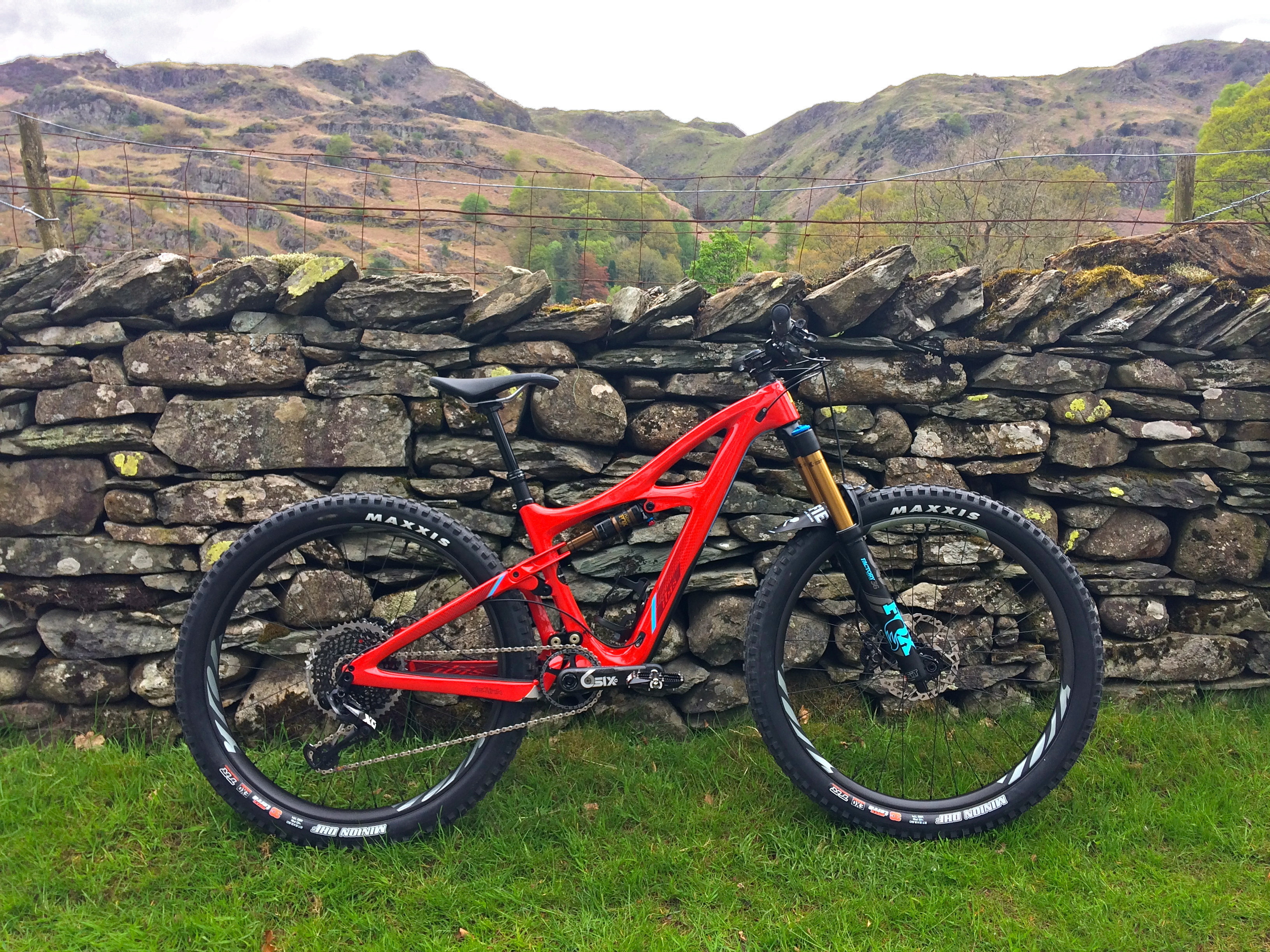 Roxy Lo, Ibis Cycles designer, with an Ibis frame
Roxy Lo, Ibis Cycles designer, with an Ibis frame
Image: Roxy Lo, the influential designer at Ibis Cycles, holding one of their renowned carbon mountain bike frames.
This design ethos resonates deeply with riders who prioritize performance and fit over marketing gimmicks. Many female mountain bikers, while not necessarily seeking “female-specific” bikes, appreciate brands that consider smaller riders in their design process. For smaller women especially, finding a mountain bike that truly fits and performs can be a challenge in an industry often dominated by larger frame sizes.
My own journey with Ibis mountain bikes began with a used Mojo SL, a bike that ignited my passion for full suspension riding. As my skills progressed, I sought a more modern geometry, eventually moving to a Santa Cruz Bronson. Yet, Ibis always held a special place in my heart. So, when the opportunity arose to test the Ibis Mojo 3, their latest trail bike iteration, I eagerly seized it.
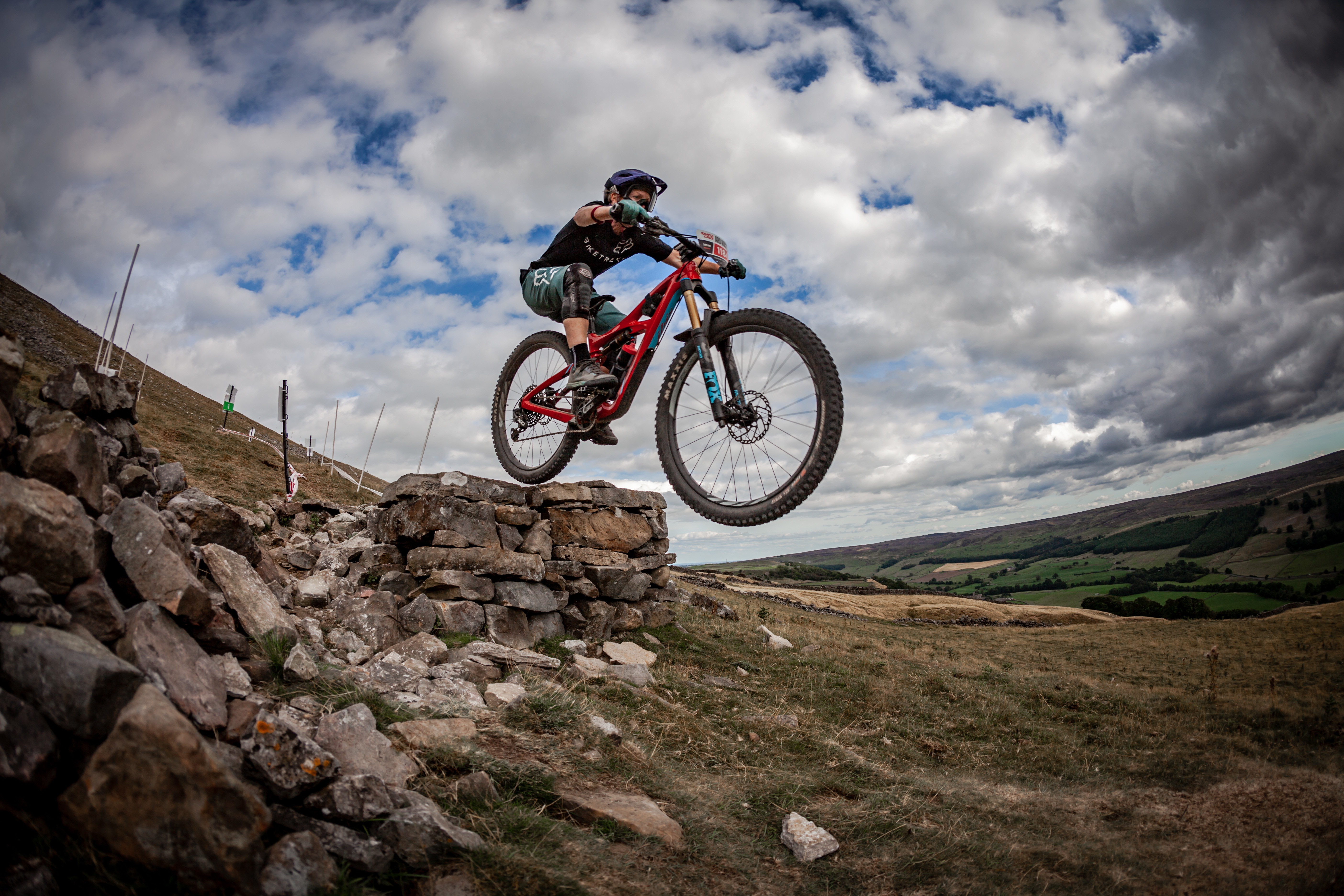 Ibis Mojo 3 trail mountain bike in action
Ibis Mojo 3 trail mountain bike in action
Image: An Ibis Mojo 3 mountain bike expertly navigating a rocky trail, showcasing its trail riding capabilities.
The Mojo lineage is central to the Ibis Mountain Bikes story. Since its introduction in 2005, the Mojo has been hailed as the bike that built the brand. It stood out as one of the first carbon full suspension mountain bike frames, blending strength with aesthetic appeal. Roxy Lo’s original design has evolved subtly over the years, with geometry tweaks transforming the Mojo 3 from its XC-oriented predecessor into a truly versatile trail machine.
A constant throughout the Mojo’s evolution is the DW-link suspension system. Featured since the original Mojo, this linkage design is celebrated for its exceptional performance, contributing to the bike’s renowned climbing and descending prowess.
Ibis Mountain Bikes markets the Mojo 3 with the tagline “Go anywhere, do anything,” and its specifications certainly back this claim. With 140mm of front travel, 130mm rear travel, and a 66.8-degree head tube angle, the Mojo 3 is positioned as the quintessential all-around trail bike. All models come equipped with a Fox Float 34 fork and Fox Float DPS Factory shock, with upgrade options to the “Werx” spec, including a Factory fork, dropper post, and carbon wheels. Build options range from SRAM NX Eagle to X01 Eagle, featuring Ibis’s own alloy or carbon wheels and bars, Ibis/Thomson Elite stems, and KS Lev or Fox Transfer dropper posts, depending on the build level. While exclusively designed for 27.5 wheels, the Mojo 3 offers ample clearance for plus-size tires, further enhancing its versatility.
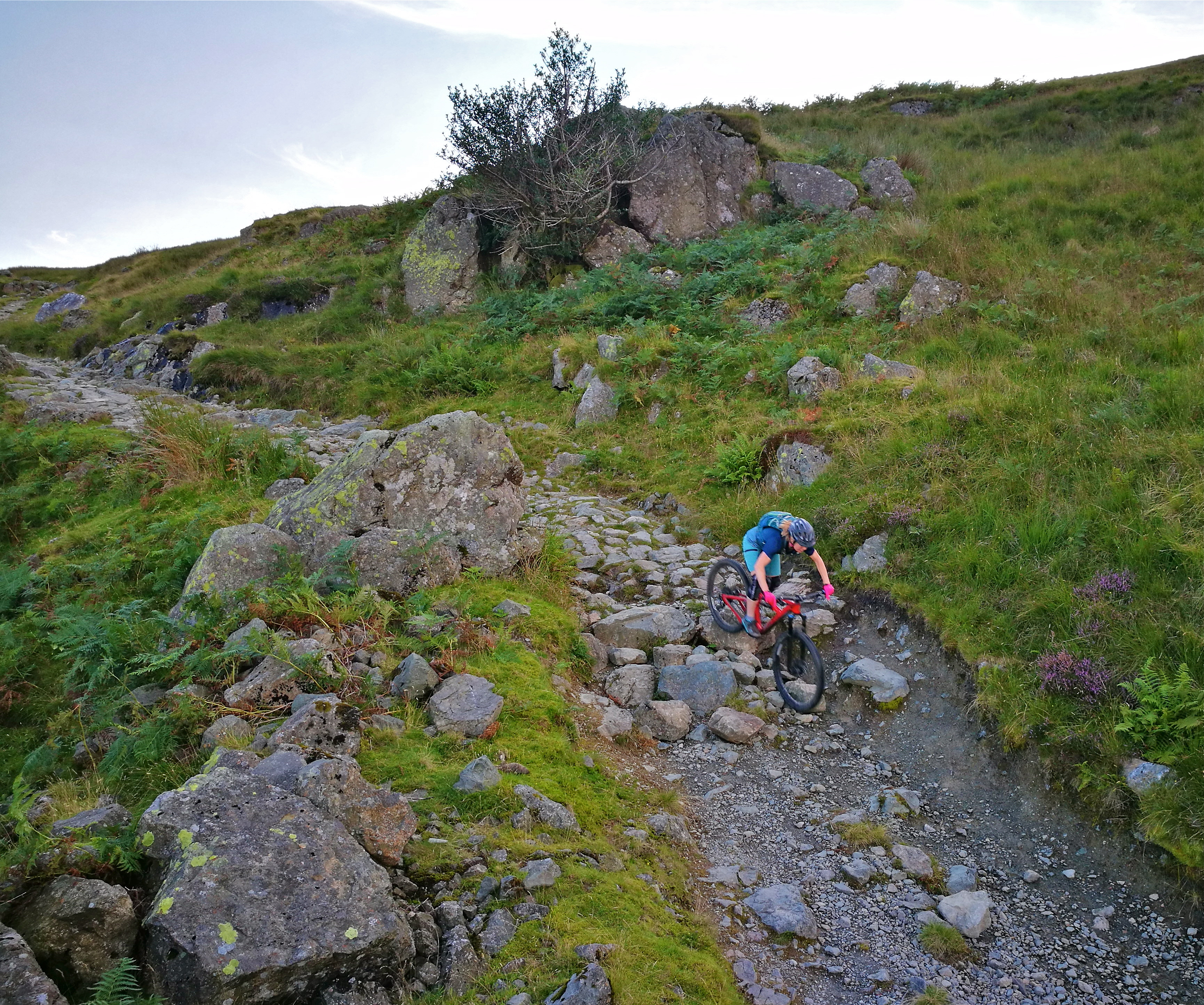 Close-up of the Ibis Mojo 3 components and frame details
Close-up of the Ibis Mojo 3 components and frame details
Image: A detailed view highlighting the high-quality components and sleek frame design of the Ibis Mojo 3 mountain bike.
The UK distributor for Ibis Mountain Bikes, 2 Pure, generously provided a small Mojo 3 for an extended test period. This allowed me to thoroughly evaluate the bike across diverse terrain in the Lake District.
My first test ride tackled Garburn Pass and “The Three Rivers,” a challenging loop known for its demanding climb. Garburn Pass ascends steeply, strewn with rocks, and tests both rider and bike. The Mojo 3 immediately impressed with its climbing efficiency. Light and agile, it ascended technical sections with surprising ease. The expansive Eagle cassette ensured consistent pedaling even on the steepest pitches, allowing me to clean the entire climb without stopping – a personal first and an immediate testament to the bike’s climbing ability.
 Rider climbing a steep section on the Ibis Mojo 3
Rider climbing a steep section on the Ibis Mojo 3
Image: A mountain biker powerfully climbing a rocky uphill trail on the Ibis Mojo 3, emphasizing its climbing prowess.
While its climbing prowess was a welcome surprise, the true test lay in the descent. Garburn Pass is notorious for its loose, rocky terrain, typical of many Lake District trails. It’s often a matter of hanging on and hoping for the best. However, the Mojo 3 handled the descent with composure, undoubtedly capable of even more had I remembered to unlock the shock!
Having survived the “buckaroo test,” I sought trails to better assess the Mojo 3’s overall performance. Grizedale Forest, with its mix of rocky bridleways and forest trails, provided the ideal testing ground. Again, the bike excelled on climbs, effortlessly powering up fire roads and technical ascents. The real revelation came on the descents. With the shock properly engaged this time, the Mojo 3 navigated a range of trails, from rough bridleways to tight, rooty singletrack. It absorbed rocks and bumps with ease, felt responsive in corners, and offered ample travel to confidently handle sizable drops. The bike’s playful nature made it easy to catch air on even small features, yet it maintained a sense of control and stability.
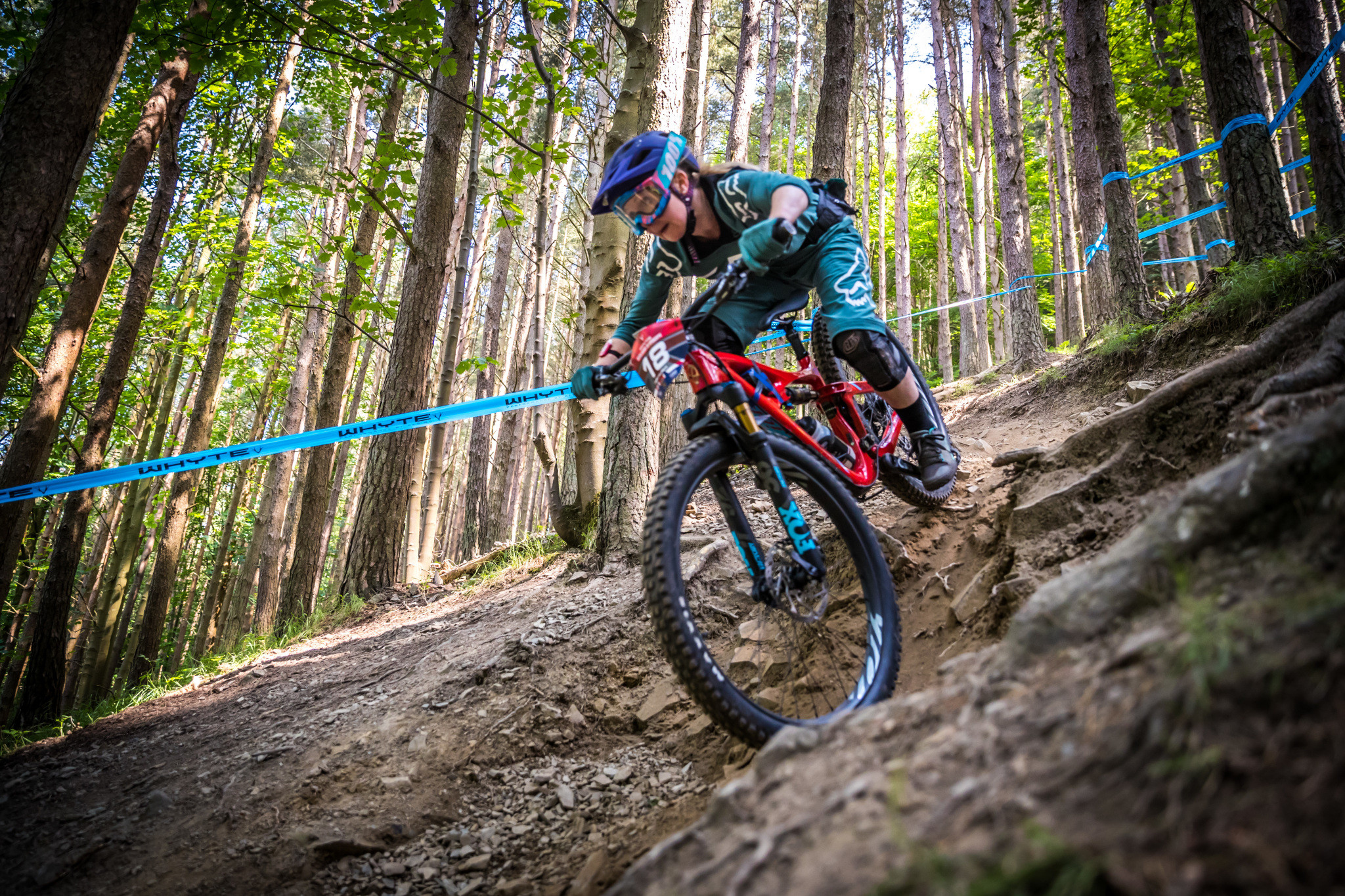 Ibis Mojo 3 rider navigating a berm on a trail
Ibis Mojo 3 rider navigating a berm on a trail
Image: A rider skillfully cornering on an Ibis Mojo 3, showcasing its responsiveness and handling on berms.
The final challenge was steep, technical terrain. Innerleithen, renowned for its demanding “Golfie” descents, was the ultimate proving ground. Trails like 3G, Waterworld, and Liver Damage are known for their steep pitches, roots, and mud. I had a slight concern that the Mojo 3 might be out of its depth here.
However, the Mojo 3 exceeded expectations. It felt remarkably composed on these challenging trails, holding its line on steep sections and managing mud and roots with confidence. It truly conquered the Golfie descents.
Ibis Mountain Bikes’ claim that the Mojo 3 is their “most versatile trail bike ever” rings true. As an enduro racer who also enjoys big mountain adventures with significant climbs, I need a bike that excels on technical descents but also climbs efficiently and is manageable for hike-a-bikes.
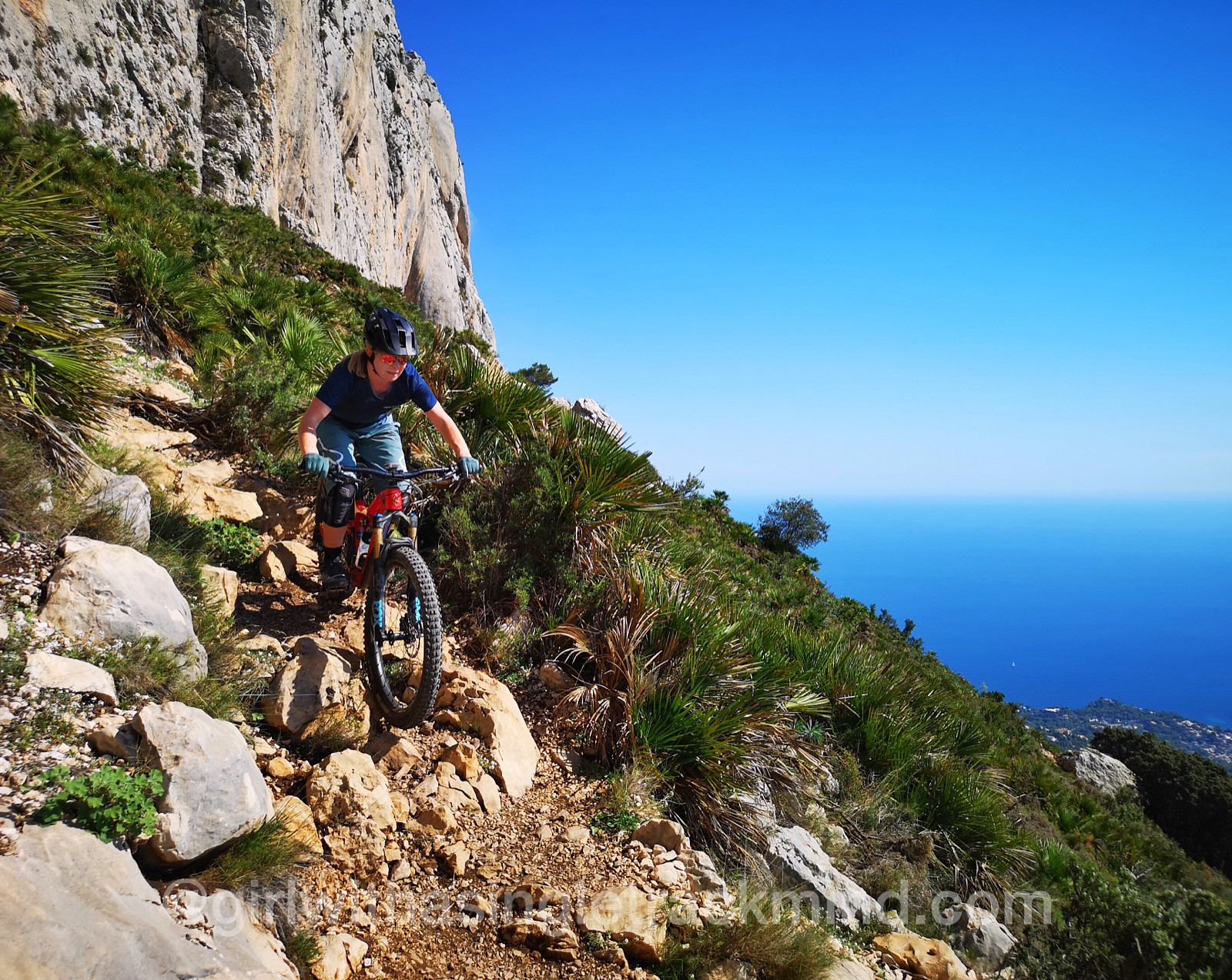 Mountain biker with Ibis Mojo 3 overlooking a mountain range
Mountain biker with Ibis Mojo 3 overlooking a mountain range
Image: A mountain biker and their Ibis Mojo 3, pausing to take in a scenic mountain vista during a ride.
The Mojo 3 ticked all these boxes. Within weeks of returning the demo bike, I placed an order for my own Ibis Mojo 3. I opted for a slight customization, upgrading to a 150mm Fox 36 fork from the stock 140mm Fox 34, enhancing its capability for aggressive riding.
Ibis Mountain Bikes also offers the “Roxy tune,” a shock setup with lower pressures for lighter riders, a feature particularly appealing to me, although it was unfortunately only available in the US at the time.
After ten months of ownership, my enthusiasm for the Mojo 3 remains unwavering. It has proven itself through a season of enduro racing, conquered challenging Lake District routes, handled technical trails in Spain, and even capably descended the World Cup track at Fort William multiple times.
 Rider descending the Fort William World Cup track on Ibis Mojo 3
Rider descending the Fort William World Cup track on Ibis Mojo 3
Image: A rider confidently descending a steep, technical section of the Fort William World Cup track on an Ibis Mojo 3.
For riders seeking a versatile mountain bike capable of tackling both demanding climbs and thrilling descents, the Ibis Mojo 3 stands out as a top contender. And for those concerned about its suitability for women – or smaller riders – rest assured that this bike’s design philosophy embraces riders of all sizes. Even larger riders will find much to love in the Mojo 3’s balanced and capable performance.
With frame prices starting at £3000 and complete builds ranging from £4249 to £7799, Ibis mountain bikes represent a premium investment. However, this reflects the meticulous design, high-quality components, and exceptional performance that define the ride experience.
Roxy Lo designed the Mojo to be a bike for everyone, irrespective of gender. Her years of experience designing some of the most sought-after mountain bikes in the world speak volumes. Ibis Mountain Bikes, and the Mojo 3 in particular, embody this dedication to inclusive, high-performance mountain biking.
